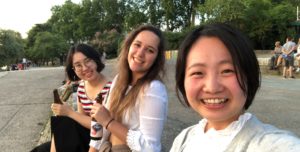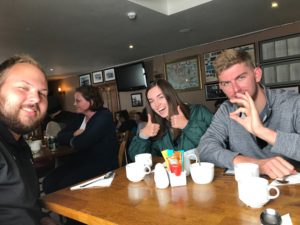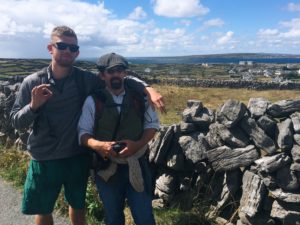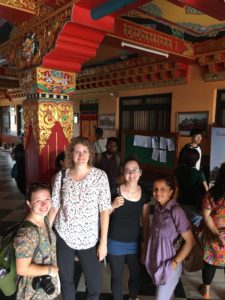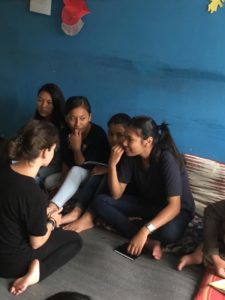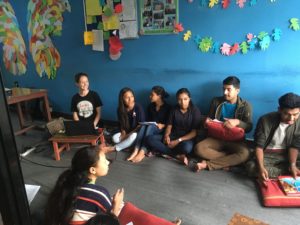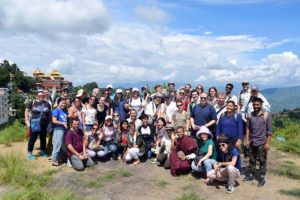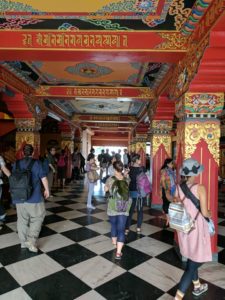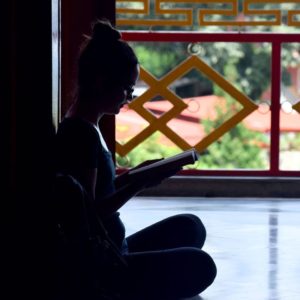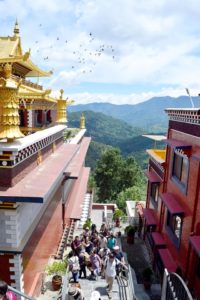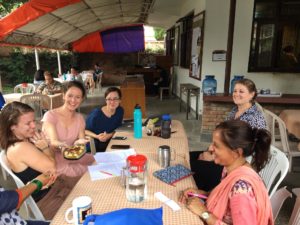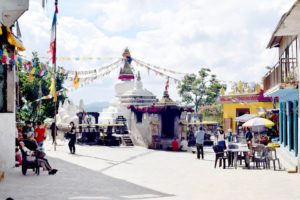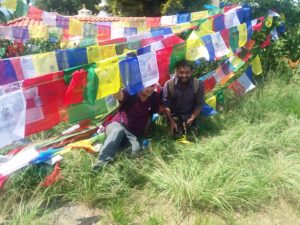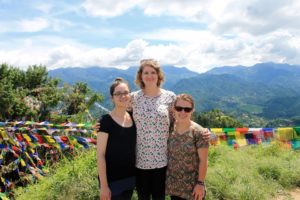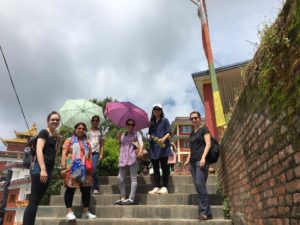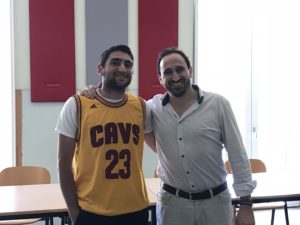The law of adoption ban in Russia
As a person adopted from Ukraine, this relatively recent issue has been of substantial interest to me. In essence, Putin has made it impossible for American citizens to adopt children from Russia, which now includes Simferopol, the city from which I was adopted. When I tell people that I’m adopted from Simferopol, the issue does tend to come up.
The first person I spoke about it with was my professor Svetlana nikolayevna, who asked me if I had heard about the law. In her opinion, it’s not very good because children are denied a potentially good home. Hers is an opinion with which I agree.
The next person I spoke to about this was my language partner, and she told me an interesting story. When the law was being decided in the country, rumors were spread around about a child who was adopted from Russia to go live in America who had died in a car crash. It was decided then, by the country, that it was too dangerous for children to go to America. People were frantic and worried that kids were going to die.
The last person I spoke to was a woman who I’ve become friends with over the course of my stay here. She said much the same thing as my conversation partner, if a little more broadly. She is under the impression that it’s common for bad people with incorrect motives to adopt children from Russia. That there is no screening of individuals from America who wish to take on Russian children.
I approached this issue, inwardly, with a fair amount of skepticism. I find it hard to believe that there truly was any intention to hurt children from Russia. What I believe happened was the use of a few terrible instances, freak accidents, to reach a political end. This issue is an easy one to scare a population about, children are involved. It’s very easy to look at a terrible instance that my have happens one time and convince a population that it’s reoccurrence is imminent and inevitable and that children should be protected. As one of the aforementioned children, however, I can say I turned out fine. Yes there are a few things I like to complain about, but my parents love me extraordinarily much and I would be much worse off without them. In an attempt to stray away from a sample size of one, I can say that I have connections with others who came out of similar circumstances, some of them great friends. I’ve never heard of something bad happening to a child whose parents wanted them so badly, that they travelled all around the world to get them.
The danger in this kind of misinformation and fear spreading, is that children are denied homes with perfectly willing, capable, loving parents. If this law had been enacted before my time, I would be living a much more difficult, probably tragic life. That I know for sure.
I suppose the takeaway here is that it’s easy to scare people, and fear has consequences. It could be a lesson to us, to be wary of scare tactics of our own politicians, and to always keep an eye out for the political gain to be had, like a fight back on American sanctions against Russia.
Attitudes toward the US
To start with the most positive, I had lunch with a new aquantaince of mine and we spent a lot of time talking about literature and the books we read. This woman is about 27. Her favorite authors are Steinbeck and Fitzgerald and she mentioned something to me I thought was interesting. She said that she felt much closer to these books, that she feels like in a past life she was American and really wants to live in America. It was a little strange to see that kind of fascination with my country from someone else. It’s almost akin to the fascination I’ve had my entire life for Russia and Ukraine. She likes the openness and frankness of American literature, and the energy of the country. It was overwhelmingly positive
The second person I’ve spoken to about this is my friend Mikhailo, about 19. His view of the country is that there is more opportunity for being entrepreneurial. He’s a very forward thinking and forward minded person and craves the business opportunity in our country, and laments the relative lack of opportunity her feels in his
The final person is my dear friend Baba Natasha. She thinks that America must be a cool place to live but has very little concept of what’s in America. She once asked me if ice cream is the same. What I get from her is the notion that it must be a good place but little else. She asked me what kind of food we eat and how I spend my time, questions about the university system and is it common to live so far from your parents?
My takeaway is this: regular people in Russia have regular opinions. Especially in St. Petersburg, everyone is aware that people aren’t the politics of their countries. Baba Natasha has a fierce love of her country and traditions though, visible even through her excitement in learning more about me. People are kind and good and driven and interesting everywhere, and so far, seem to be aware of that even when speaking to a person from a different country. I might be an American but I’ve so far not seen any bad connotation with that fact
Borshch, a traditional Ukrainian dish
When most people think of Russia they think of potatoes and beets. So in a restaurant one day, I ordered borshch. I asked the waiter about it and was surprised to learn that borshch is actually Ukrainian in origin. Ukraine and Russia are very close, and it’s easy to see how the dish spilled over but according to this waiter, Ukraine did it first. The special part of its presentation? A bay leaf sitting in the broth for only five minutes before the soup is ready to be served. The role of soup is very important in Russian culture, as a warm dish would be in such a famously cold country. It’s one of the easiest dishes to make in times of struggle with whatever happens to be on hand and it therefore makes sense that it would catch on. I was in a bar once speaking with the bartender and mentioned that I want to practice russian more, and his first advice to me was to go to the old “Soviet stolovayas (cafeterias) where they serve s**tty soups.” Despite the roughness of the comment, the noteworthy part is his mention of soup before any other dish. So the most well known Russian dish in the most important food group of the country, is apparently Ukrainian. I’m sure many would refute me on that, but it’s just what I heard.
New Year’s Eve
I’ve always heard that New Years in Russia is a much bigger deal than in the US. Since the country was officially non-religious for so long, it became like Christmas. To be honest I was a little surprised when I heard so little about presents. After talking to a tour guide about the holiday, I learned that a lot of people celebrate it and that there is actually a big celebration in the square of the winter palace, but that it’s more of a tourist attraction than something many natives attend. From the family that I’ve spent time with, I learned that for most, New Years is mainly a time to take a little time off work, travel, see family, and have a little fun. So not that different, except for the fact that Christmas hardly rivals it.




